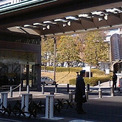
Isao Mori was born in 1961. He is a journalist and a non-fiction author. The years 2008 and 2009 respectively saw him bestowed with the”Zasshi Janarizumu-sho Sakuhin-sho” (Magazine Journalism Work Award). He wrote the book “Kyo Eichu Nihon no Yami wo Seoi-Tsuzuketa Otoko” (Eichu Kyo: Bearing the Brunt of the Japanese Underworld) (Kodansha). His blog is as follows: http://mori13.blog117.fc2.com/
Everybody knows that the relationship between Japan and South Korea has increasingly turned sour over the verdict pronounced by the Korean judiciary which ruled out the current Japan-South Korea Basic Treaty on comfort women and forcibly transported laborers during the Second World War. Concerns expressed by victims on the South Korean side are understandable. However, it is actually the Korean government that should be held liable for signing the treaty. It is unacceptable that the Korean judiciary disregards an international treaty signed in the past because of the impossibility to sue the government. This is but a sign of a judicially backward nation.
On the other hand, in Japan a similar state of affairs is happening about the unfolding debate over the collective self-defense. It’s obvious that the Abe regime is trying to bulldoze the restrictions on a constitutional interpretation which would give Japan the right to jointly attack an enemy state along with allied countries. Right or wrong, isn’t it appropriate to boldly consider the Constitution itself? Isn’t learning from others’ mistakes the right attitude?
[Excerpt from the Blog “Mori Isao no burogu”]
(Translated from Japanese by Willy Lukebana Toko)
*Photograph: Ministry of Defense2 (Wikimedia Commons/Author: 本屋)



コメント